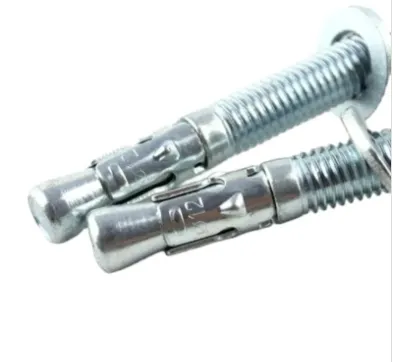Nov . 21, 2024 03:18 Back to list
anchor fastener type
Understanding Anchor Fastener Types
Anchor fasteners are essential components in the construction and manufacturing industries. They play a crucial role in securely fastening materials to various substrates, whether for building structures, installing equipment, or supporting heavy machinery. This article will delve into the different types of anchor fasteners, their applications, and considerations for choosing the right type for specific projects.
Types of Anchor Fasteners
1. Expansion Anchors Expansion anchors are one of the most common types used in concrete and masonry applications. They work by expanding when a screw or bolt is tightened, creating a strong grip within the material. Common examples include wedge anchors and sleeve anchors. Wedge anchors provide high tensile strength and are ideal for heavy loads, making them suitable for structural applications. Sleeve anchors, on the other hand, are more versatile and can be used in various materials, including brick and concrete.
2. Concrete Screws Designed specifically for use in concrete, these screws have a patented thread design that allows them to cut into the concrete as they are driven in. Concrete screws are simple to install and remove, which makes them popular for applications that require frequent adjustments, such as attaching fixtures to concrete surfaces. They are ideal for light to medium-duty applications.
3. Masonry Anchors Masonry anchors are used when fastening materials to brick, block, or stone. They come in different designs, including drop-in anchors, which are inserted into pre-drilled holes and provide a secure hold. They are commonly used for hanging heavy objects like shelves or artwork.
4. Toggle Bolts Toggle bolts are ideal for hollow walls, such as drywall or plaster. They consist of a bolt and a spring-loaded toggle that opens inside the wall, providing a strong anchor point for heavy items like cabinets or mirrors. Their ability to distribute weight is a significant advantage when securing items to thin walls.
5. Chemical Anchors These anchors use adhesive compounds to bond screws or rebar within drilled holes. They are particularly useful in applications where high performance is necessary, such as in environments exposed to moisture or heavy loads. Chemical anchors can be used in various substrates, including concrete, stone, and masonry.
anchor fastener type

Choosing the Right Anchor Fastener
Selecting the appropriate anchor fastener for a project depends on several factors
- Load Requirements Understanding the weight and stress the fastening will undergo is crucial. Heavy-duty applications will require stronger anchors like wedge anchors or chemical anchors.
- Base Material The substrate (concrete, brick, drywall) plays a significant role in anchor selection. For instance, toggle bolts are not suitable for concrete but work well with drywall.
- Environmental Conditions If the installation is outdoors or in a high-humidity area, corrosion-resistant materials, such as stainless steel or galvanized anchors, are advisable to ensure longevity.
- Installation Ease Some anchors require specific tools or expertise to install. Projects that involve quick fixes may benefit from more straightforward options like concrete screws or expansion anchors.
In conclusion, understanding the types of anchor fasteners and their applications allows for informed decisions when selecting the right one for a specific project. Whether working on home improvements, commercial construction, or industrial applications, the right anchor fastener enhances safety and durability.


